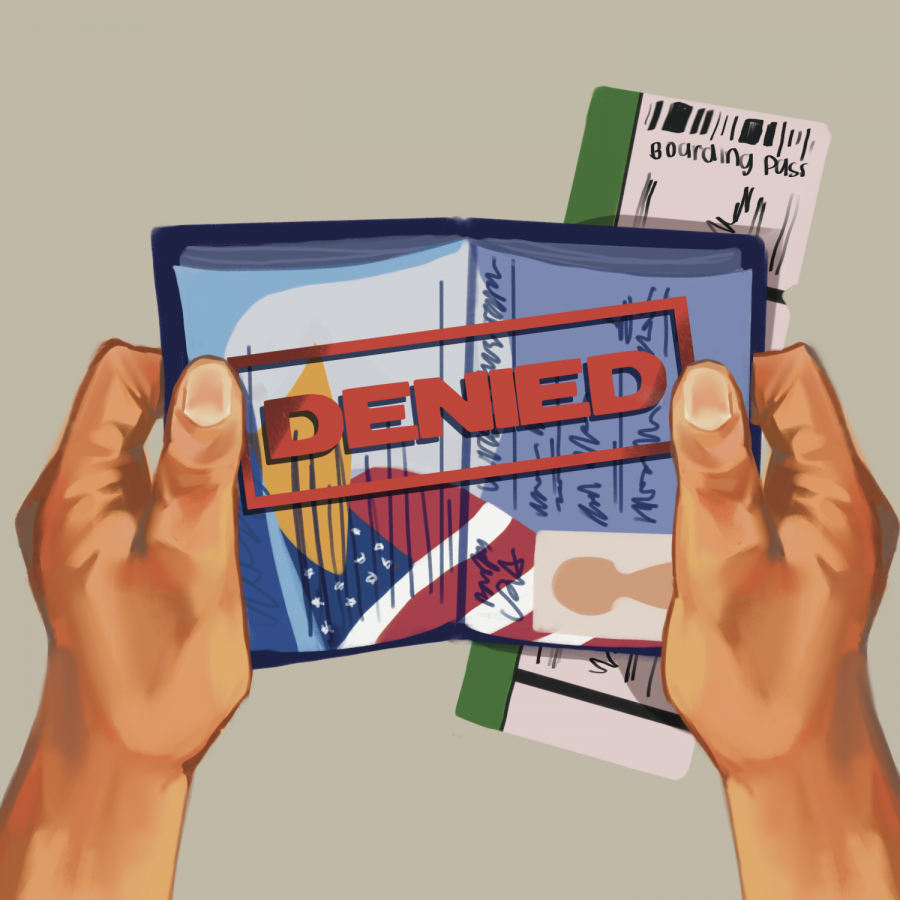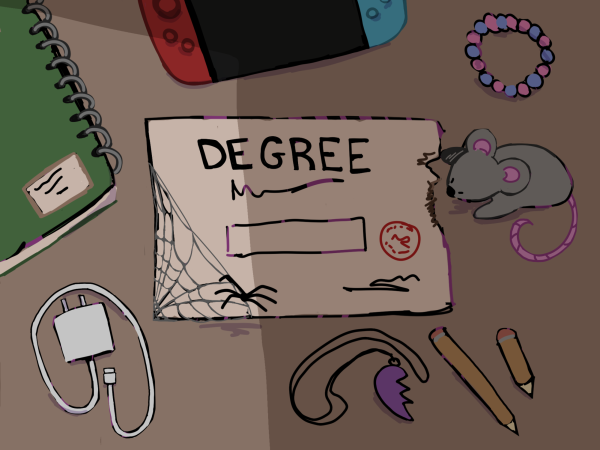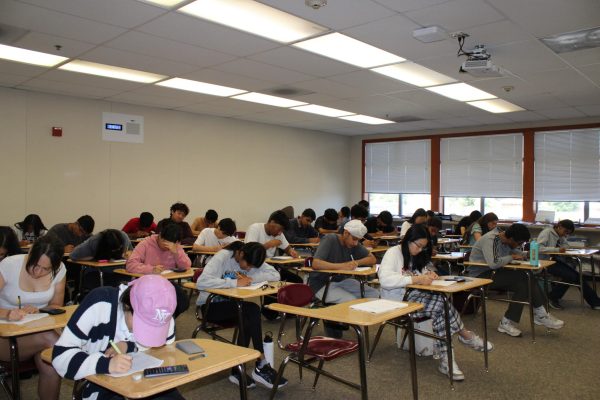Omicron variant travel ban is more than unfair
International travel bans aren’t helping people any more than wearing your mask halfway.
Opinion columns reflect the view of the staff writer.
Not long after the situation with the pandemic seemed to return to normal, the world was thrown another curveball in the form of the omicron variant of SARS-CoV-2, sending hopes of international travel crashing.
After South African scientists first reported the variant on Nov. 24, President Joe Biden’s administration prohibited flights to South Africa, Botswana, Lesotho, Eswatini, Namibia, Malawi, Mozambique, and Zimbabwe. Although cases were only confirmed in South Africa and Botswana at the time, it’s a justifiable precautionary measure since these are closely located.
But then on Nov. 26, President Biden announced that the travel limitations exempt permanent residents and U.S. citizens. On Dec. 1, the first case of the virus was detected in California, but the restrictions remained.
In other words, this ban is proving to be highly selective and unfair because of who it applies to, and it isn’t even fully effective.
Blanket travel bans, or restrictions that involve the majority of a group, are useful to prevent a virus from entering a country. But once the spread has begun, they don’t do much more than “place a heavy burden on lives,” according to the World Health Organization. Biden himself acknowledged that its main purpose was to buy time on how to proceed.
Thankfully, hospitalization numbers haven’t spiked like with previous variants, so there’s some reason to believe that the omicron virus isn’t as virulent (although we can never be sure). Most likely, having a moment to think won’t be as costly.
But this doesn’t defend the shaky reasoning. It’s understandable that people can’t journey to South Africa, but in that case, why isn’t there a travel ban against Europe, where cases might have existed even before? Moreover, if it doesn’t apply to permanent residents and U.S. citizens, is the country really closed off?
It really seems like we’re scorning Africa instead of commending them for their transparency, and we’ve favored everyone but immigrants in the process. Are we setting them up to be the next scapegoat, after China with the original SARS-CoV-2 and India with the Delta variant?
White House medical adviser Anthony Fauci said, “That ban was done at a time when we were really in the dark – we had no idea what was going on,” according to Bloomberg.
But now we do. We’ve learned to face the virus with masks, testing, and vaccines, and more importantly, we know that obstructing international trips does little to constrain the spread inside a nation. This isn’t supporting large groups to flock to their favorite winter resort across the globe, but we shouldn’t still be cowering behind postponed flights and invisible borders.
Resume travel between the banned African countries and the U.S. Increase our supply of vaccines. Provide for the people who are most affected by the omicron variant. The administration should support and cooperate with others, instead of explaining their actions with stereotypes and fear.
We’ve already begun to take steps in the right direction. Previously, a negative COVID test was required 24 hours prior to departure for all unvaccinated passengers and 72 hours prior for vaccinated passengers. As of December 6, a negative result must be shown 24 hours regardless of vaccination status, according to the CDC.
If only the majority of people had test results available this quickly.
So, as of now, international travel is out of reach, but people, including the administration, are far from blind.
“We are going to fight COVID-19 not with shutdowns or lockdowns – but with more widespread vaccinations, boosters, testing, and more,” Biden told USA Today.
Let’s hope they follow through before the flight tickets expire.

Senior Shravya Salem Sathish is in for Round 3 of The Californian, now as Opinions Editor. This year, she’s looking forward to tackling more exciting...

Senior Carol Chen joins the Californian as an artist for the second time, after taking a break during junior year. This year, she plans to experiment...


